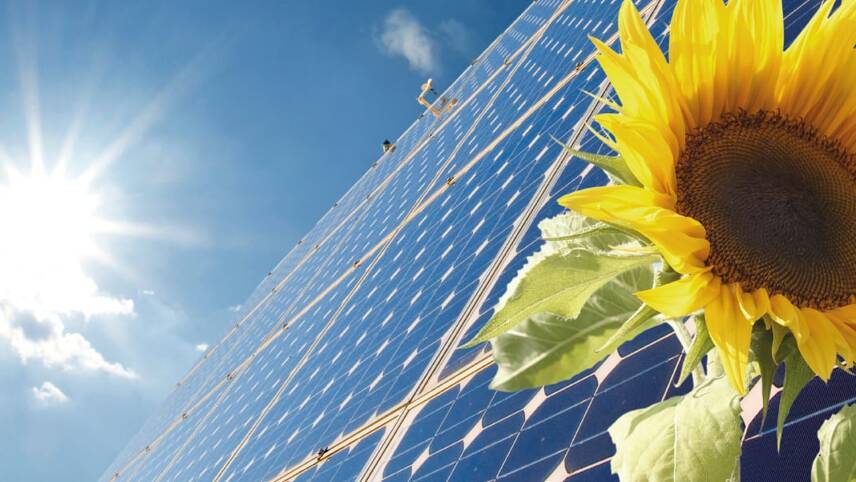Member only content free until 27/05/2024
To continue reading this article and enjoying free access to all Utility Week’s content up to the 27/05/2024 Register today!
Ready to become a member?

More than half of people say they are confused about what a green energy tariff is, new research has revealed.
A survey of 2,000 adults conducted by Opinium on behalf of Uswtich revealed that despite valuing the importance of renewable tariffs, 52 per cent are confused about what the term actually means.
Currently 9 million households have a ‘green’ deal with their energy provider but more than a quarter (29 per cent) think a green tariff means the energy supplied is 100 per cent renewable, while a further 42 per cent do not know at all.
The research cited “confusing information and jargon” as reasons preventing a quarter of consumers from choosing a green tariff when they last switched supplier.
While 76 per cent say they think using energy from renewable sources is an important factor in choosing a deal, 17 per cent do not believe wind power is green while 7 per cent think burning gas is. Furthermore, 36 per cent are unsure if they are on a green tariff or not.
The research comes as Uswitch announces the launch of a new scheme which will independently verify and accredit green tariffs as a way to recognise “standout examples of best practice” from suppliers.
The Uswitch Green Accreditation Scheme will categorise tariffs into ‘bronze’, ‘silver’ and ‘gold’ — splitting them up depending on the level of renewable energy suppliers directly buy and the level of investment they are making to support the growth of renewable energy.
Classifications
- Bronze
Tariffs provide electricity that is matched with renewable generation certificates (REGOs).
- Silver
Given to tariffs that include 42.9 per cent of electricity bought directly from renewable generators via so-called Power Purchase Agreements (PPAs). The number is based on the proportion of renewable energy generated in 2020.
Dual fuel tariffs that have slightly less electricity purchased via PPAs (around 32.9 per cent) can still reach this standard if they include some green gas (biomethane) in the gas mix and/or offset the gas consumed through schemes that can be traced to specific carbon offset projects, following a world-class quality standard.
- Gold
Gold Standard tariffs will provide 100 per cent of renewable electricity from PPAs and 10 per cent of green gas. These tariffs will also provide a meaningful contribution towards increasing and/or promoting renewable energy, for example investing into future renewable generation, such as wind or solar and market innovations that help promote renewable uptake.
The independent panel has reviewed these tariffs and handpicked the ones that can truly be called market leading in their environmental credentials.
Good Energy has become the first supplier to be accredited, with four of its tariffs achieving gold. Uswitch said more tariffs from other suppliers will be announced soon.
The criteria for tariffs to be accredited is verified by an independent panel of industry experts chaired by Uswitch.com’s head of regulation Richard Neudegg. The panel will review the criteria annually, to ensure it reflects current market conditions.
Other members on the panel include:
- Maxine Frerk, an associate at the charity Sustainability First
- Jeff Hardy, a non-executive director at Public Power Solutions and senior research fellow at the Grantham Institute at Imperial College
- Rosie McGlynn, director at Mentone Energy Consultancy
- Matthew Hannon, a senior lecturer at the Hunter Centre for Entrepreneurship within the University of Stratchlyde’s Business School
- Chris Welby, trustee of Severn Wye Energy Agency
Neudegg said: “Green tariffs are increasingly in demand from those who want to do their bit for the environment, but it’s clear that there’s a vast gulf between the perception and the reality of what makes up these deals.
“Our accreditation system is an industry first and will make it easier for consumers to make an informed choice when selecting a green energy deal, based on where the energy actually comes from and how much the tariff contributes towards renewable energy in future.
“It’s evident that confusion in the renewables space has been brewing for some time and we want to be on the front foot to help consumers identify the varying levels of green that are being presented to them.”
Juliet Davenport, founder and chief executive of Good Energy, said “This is a watershed moment for transparency around green tariffs.
“For years now energy suppliers have been able to mislead customers who are trying to do the right thing in choosing green. So it’s brilliant to see Uswitch take action, and do it in the right way by asking independent experts. We hope to see other comparison and switch services follow suit.
“The UK cannot achieve net zero without bringing everyone along, and being dishonest with the very people trying to help is not the way to go about that. In order to build a greener future together, we have to give people the facts about the renewable choices they are making.”




Please login or Register to leave a comment.